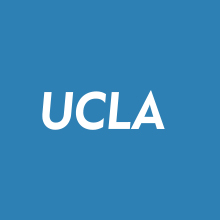What were your favorite philosophy courses at UCLA?
Various courses in the history of philosophy
Are there any philosophical issues, readings, or topics that have stayed with you since graduation?
I still think about many of the central issues in philosophy. In recent years I’ve read quite a few works by anti-realist thinkers–with whose views I am not in sympathy, but I’ve been very stimulated by reading them.
Have you read any philosophy recently that you would recommend?
I recently read the late Michael Dummett’s THE LOGICAL BASIS OF METAPHYSICS. It’s not an easy book to read, but has much to interest students of epistemology and metaphysics.
What was your first job or endeavor after UCLA?
Graduate school. My first “real” job (apart from being a teaching assistant during my time at Berkeley) was teaching at Michigan State University, where I spent my entire career (although after I retired from MSU, I was for a while a Visiting Professor of Philosophy at Claremont Graduate School and at the University of California-Santa Barbara).
What lessons or skills from philosophy do you use in your career?
My undergraduate training prepared me for graduate school at UC, Berkeley. After graduate school, I spent thirty-four years teaching philosophy at Michigan State University. My specialty was the history of modern philosophy, something I became interested in as a UCLA undergraduate. I published a number of things that pertain to the history of early modern philosophy, including MALEBRANCHE AND BRITISH PHILOSOPHY (Oxford University Press, 1983) and BERKELEY’S ‘PRINCIPLES’ AND ‘DIALOGUES’: BACKGROUND SOURCE MATERIALS (with Ian Tipton; Cambridge University Press, 2000). The courses I had in the history of philosophy as an undergraduate launched my interest in the history of philosophy.
Do you have advice for current students or recent graduates about how to take advantage of and continue their philosophical education?
I’m afraid I don’t. I’m very glad I went on from UCLA to graduate school in philosophy, and I was fortunate to come out of graduate school at a time (now over half a century ago) when jobs teaching philosophy were plentiful.


